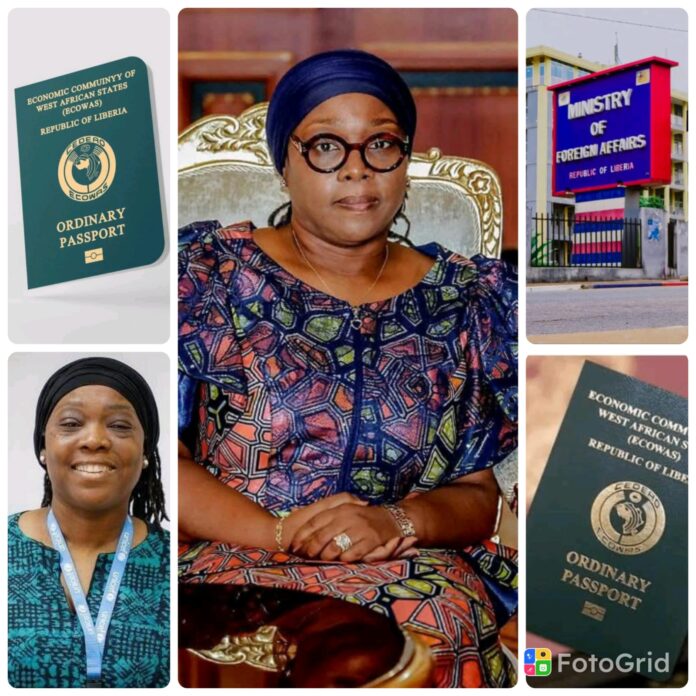Monrovia, Liberia – July 21, 2025 — In a landmark step toward citizen-centered governance and equitable access to public services, the Government of Liberia, through the Ministry of Foreign Affairs, is set to dedicate two newly established Decentralized Passport Application Centers in Bong and Grand Gedeh Counties. The move is strategically timed to coincide with the country’s 178th Independence Anniversary celebrations, signaling a commitment to national unity through inclusive public service delivery.
Decentralization Milestone: Addressing Geographic Inequity
For decades, passport issuance in Liberia has been heavily centralized in Monrovia, forcing citizens in remote counties to travel long distances — often up to 250–500 kilometers — to access this critical service. The financial burden, transportation costs, and time required have posed significant barriers, particularly for rural dwellers.
The decentralization initiative under the leadership of Minister of Foreign Affairs, H.E. Sara Beysolow Nyanti, is a direct response to these long-standing logistical challenges. It is part of a broader public sector reform aimed at improving government responsiveness and reducing urban-rural service gaps.
According to a 2022 Afrobarometer survey, 57% of Liberians expressed dissatisfaction with their ability to access basic government services — a figure that rose to 68% in rural counties. The establishment of passport centers outside Monrovia is expected to address part of this imbalance by easing congestion at the capital’s main passport bureau and bringing services closer to the people.
New Centers, New Opportunities
The centers in Bong and Grand Gedeh are fully equipped with biometric passport processing technology, secure data systems, and trained personnel. These facilities will enable applicants to submit documents, undergo biometric enrollment, and receive passports without the need to travel to Monrovia. The centers are expected to serve tens of thousands of citizens across Central and Southeastern Liberia, improving service turnaround time and reducing costs by an estimated 30–50% per applicant, based on travel and lodging expenses previously incurred.
In her official statement, Minister Nyanti underscored the broader significance of the initiative: “These centers are not just buildings; they are symbols of inclusion, equity, and the government’s promise to bring services to the people.”
Nyanti, who assumed office earlier this year, has prioritized decentralization and transparency in service delivery. Her leadership marks a shift from policy rhetoric to concrete implementation, as evidenced by this regional expansion of passport services.
Regional Inclusion as National Strategy
The move to decentralize services is more than an administrative reform — it is a strategic tool for national cohesion. By bringing vital services to historically underserved regions like Bong and Grand Gedeh, the government signals its intent to bridge Liberia’s development divide.
Historically, access to official documentation has been linked to civic inclusion. Without a passport or national ID, citizens face limitations in accessing education, healthcare abroad, travel, and even some financial services. The introduction of regional passport centers not only increases access but also strengthens citizens’ participation in national and international life.
Public Participation and Local Ownership
The upcoming dedication ceremonies, scheduled for next week, will be attended by local government officials, traditional leaders, youth groups, and community stakeholders. This inclusive approach reflects the collaborative nature of the project and the Ministry’s effort to ensure community ownership and sustainability.
Local leaders have welcomed the initiative, noting the relief it brings to citizens who previously had to spend up to L$15,000–L$25,000 (approximately US$75–125) on transportation, food, and accommodation while traveling to Monrovia for passports.
“Having the center here means I can get my passport without leaving my farm for two or three days,” said a resident of Gbarnga, Bong County. “It’s a huge relief.”
Strategic Implications for Broader Reform
Beyond the passport program, the Ministry of Foreign Affairs’ decentralization effort is viewed as a pilot model for broader public sector reform. Observers suggest that similar models could be replicated for birth registration, national ID enrollment, consular services, and even voter registration.
Liberia’s long-standing dependence on a Monrovia-centric administrative structure has been widely criticized for excluding citizens from the periphery. With over 52% of the population living outside the capital, according to the 2022 National Population and Housing Census, decentralization efforts like this could reshape the governance landscape.
A Step Toward Citizen-Centered Governance
As Liberia marks 178 years of independence, the inauguration of these new centers reflects a tangible shift from centralized bureaucracy to service-oriented governance. It also enhances the credibility of President Joseph Boakai’s administration, which has prioritized inclusivity and local empowerment in its national development agenda.
While challenges remain — including funding, staffing, and maintenance — the successful implementation of these centers will set a precedent for future decentralization efforts. It will also be a litmus test for how far the government is willing to go to reduce structural inequalities in public service access.
As the Ministry of Foreign Affairs continues to expand its reach, citizens across Liberia can begin to envision a future where essential services are no longer a privilege of geography but a guaranteed right of citizenship.
Bottom Line
The establishment of Passport Application Centers in Bong and Grand Gedeh Counties is more than an Independence Day announcement — it’s a transformational step toward a more equitable, inclusive, and accessible Liberia. With the right political will and sustained investment, this could be the beginning of a wider decentralization wave that reshapes public service delivery across the country.



